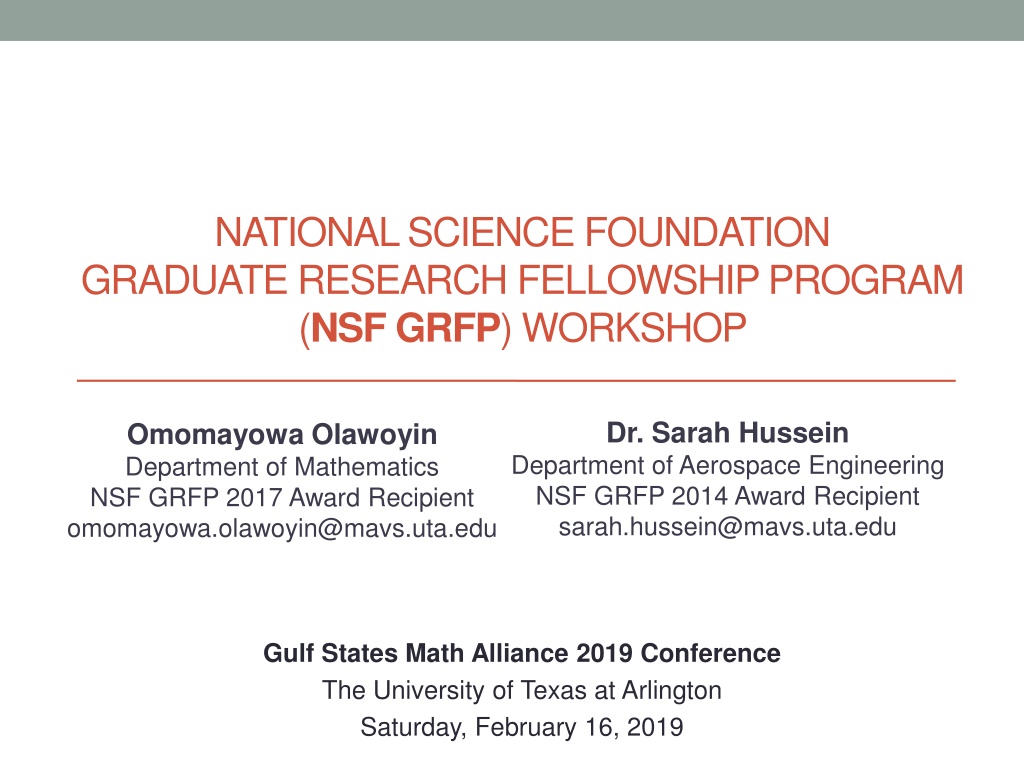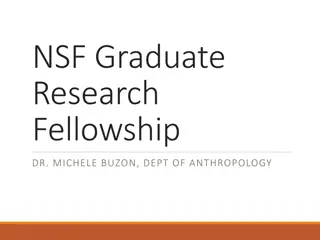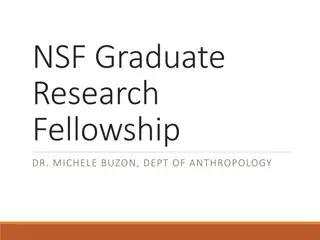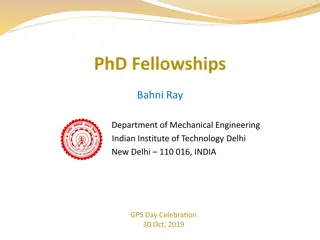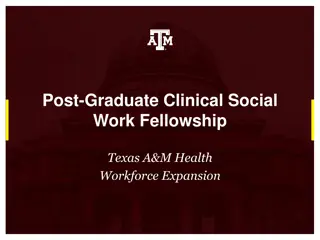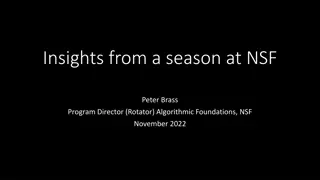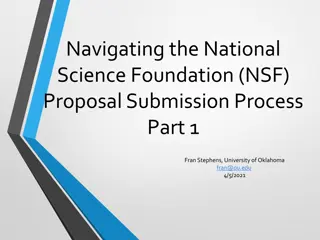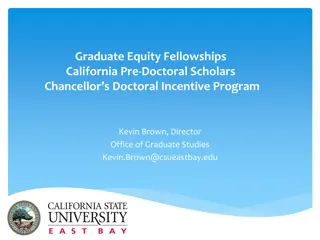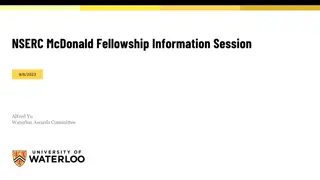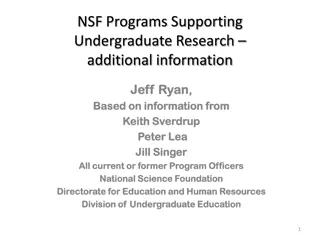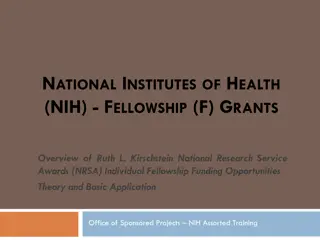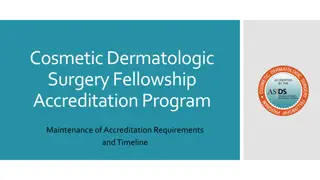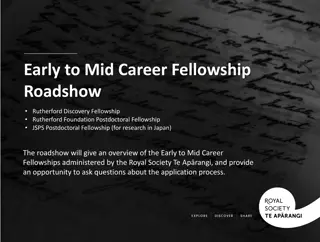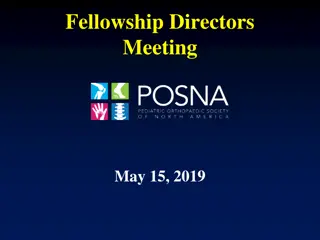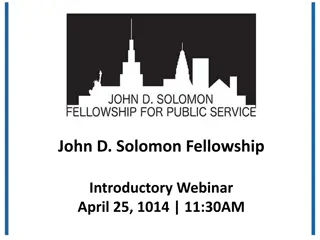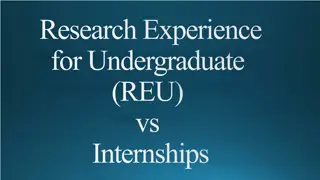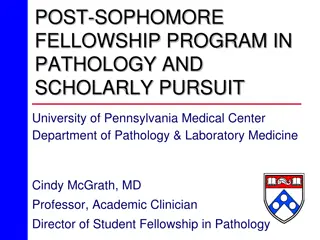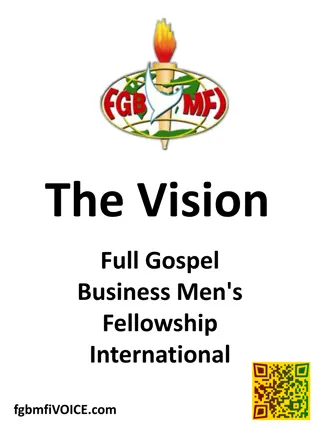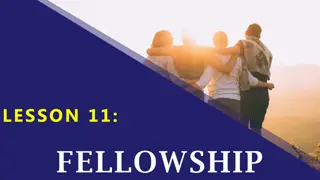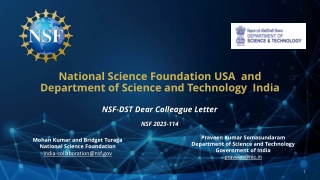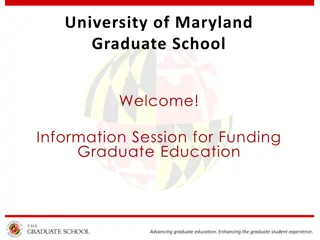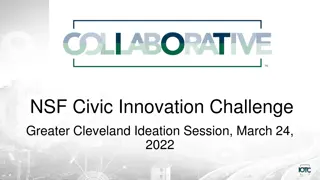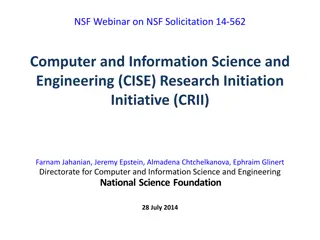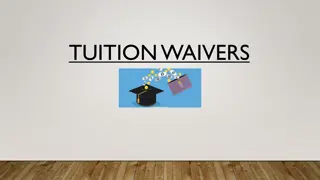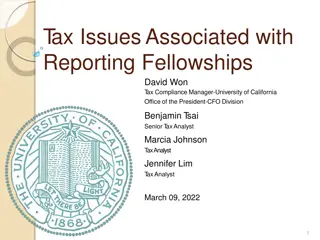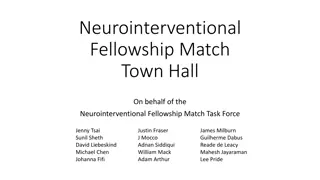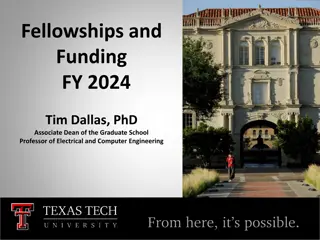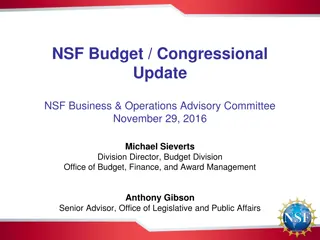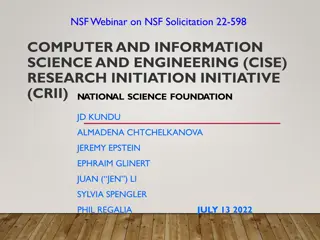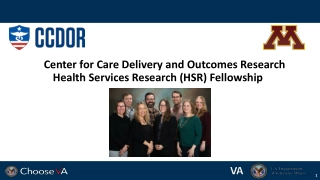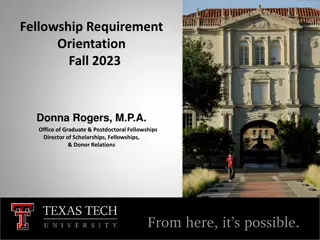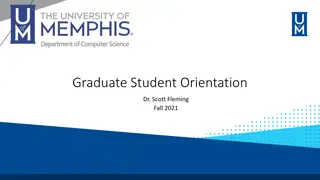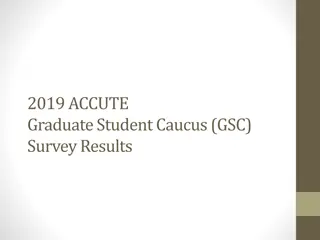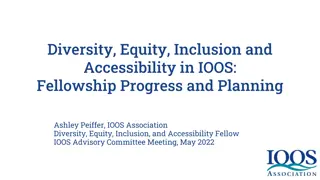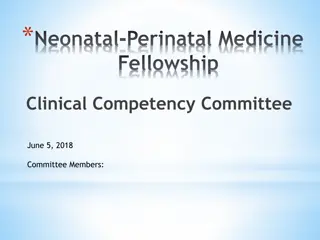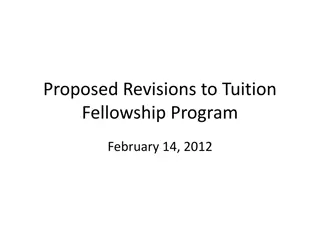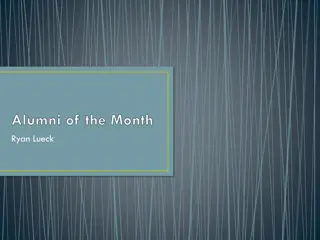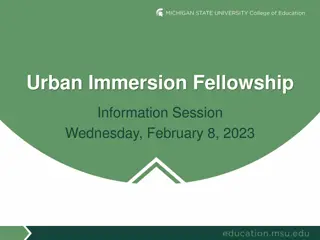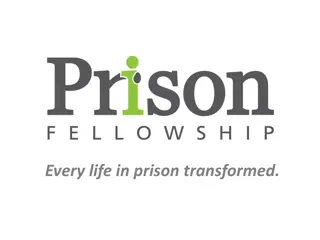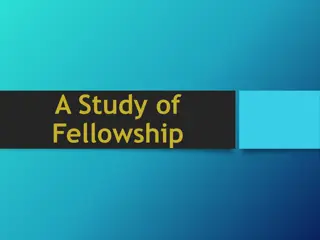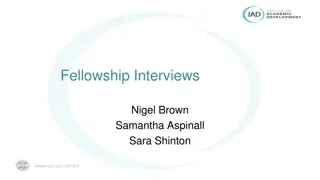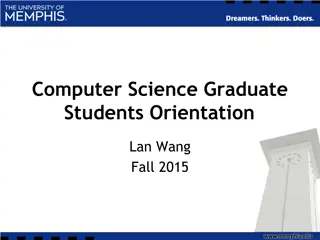NSF GRFP: A Comprehensive Guide to the National Science Foundation Graduate Research Fellowship Program
The National Science Foundation Graduate Research Fellowship Program (NSF GRFP) is a prestigious award supporting early career individuals in STEM fields. This post covers the award description, myths, application process, and important dates for eligibility and preparation. Learn about the benefits, requirements, and steps to enhance your chances of receiving this highly competitive fellowship.
Download Presentation

Please find below an Image/Link to download the presentation.
The content on the website is provided AS IS for your information and personal use only. It may not be sold, licensed, or shared on other websites without obtaining consent from the author. Download presentation by click this link. If you encounter any issues during the download, it is possible that the publisher has removed the file from their server.
E N D
Presentation Transcript
NATIONAL SCIENCE FOUNDATION GRADUATE RESEARCH FELLOWSHIP PROGRAM (NSF GRFP) WORKSHOP Dr. Sarah Hussein Department of Aerospace Engineering NSF GRFP 2014 Award Recipient sarah.hussein@mavs.uta.edu Omomayowa Olawoyin Department of Mathematics NSF GRFP 2017 Award Recipient omomayowa.olawoyin@mavs.uta.edu Gulf States Math Alliance 2019 Conference The University of Texas at Arlington Saturday, February 16, 2019
What is the NSF GRFP? https://www.nsfgrfp.org/ Award Description Graduate level national fellowship supporting individuals in their early graduate careers Demonstrated potential for significant research in STEM fields Awarded to about 1500 applicants nationwide Past fellows include numerous Nobel Prize winners, US Secretary of Energy, and Google Founder Award Distribution Three years of support for master s/doctoral degrees over five years Award Funds Anticipated funding amount $138,000 Stipend of $34,000 annually| $2,833 monthly Cost- of- education allowance $46,000 total | $12,000 annually Available cyberinfrastructure resources: supercomputing time International and professional development opportunities
NSF GRFP Myths It is too hard | it is impossible to get the award Students must have determined their graduate school university and thesis project before applying Students from Ivy League schools have a better chance at getting the fellowship Students must have published research articles prior to applying Personal and research statements must be written in formal essay format
NSF GRFP Application Process - US citizen, national, or permanent resident Enrollment in full- time research- based graduate degree- STEM First graduate degree Confirm Eligibility Initiate Preparations - Locate and Utilize Available Resources - Plan Overall Deliverable Package Start Writing: Personal Statement and Research Proposal Start Online Application: FastLane Acquire Reference Letters
NSF GRFP Application Process Confirm Eligibility - October 25, 2019 primary field of study corresponding specialty fields - Give application sufficient time Note the deadlines Initiate Preparations Locate and Utilize Available Resources Plan Overall Deliverable Package Start Writing: Personal Statement and Research Proposal Start Online Application: FastLane Acquire Reference Letters
NSF GRFP Application Process Confirm Eligibility https://www.nsf.gov/pubs/201 8/nsf18573/nsf18573.htm https://www.alexhunterlang.co m/nsf-fellowship Initiate Preparations - - NSF GRFP website Program solicitation Previous applicant / fellow websites Fellows in your institution Faculty members Locate and Utilize Available Resources - - Plan Overall Deliverable Package - Start Writing: Personal Statement and Research Proposal Start Online Application: FastLane Acquire Reference Letters
NSF GRFP Application Process Confirm Eligibility - GPA- transcripts - Research experiences projects publications conferences - Outreach activities summer camps websites Academic record Initiate Preparations Locate and Utilize Available Resources Plan Overall Deliverable Package Start Writing: Personal Statement and Research Proposal Start Online Application: FastLane Acquire Reference Letters
NSF GRFP Application Process Confirm Eligibility Initiate Preparations - - - Long application Little by little Don t be intimidated Locate and Utilize Available Resources Plan Overall Deliverable Package Start Writing: Personal Statement and Research Proposal Start Online Application: FastLane Acquire Reference Letters
NSF GRFP Application Process - - - Your original work Clear and concise Avoid jargon Confirm Eligibility Initiate Preparations - potential to advance knowledge - Broader impact potential to benefit society contribute to advancement Intellectual Merit Locate and Utilize Available Resources - Find a reviewer- help Plan Overall Deliverable Package Start Writing: Personal Statement and Research Proposal Start Online Application: FastLane Acquire Reference Letters
NSF GRFP Application Process - Three strong reference letters required- speak to your abilities and potential Up to five spots- rank Discuss application- share essays Research advisor, outreach program directors- not class instructors Confirm Eligibility Initiate Preparations - - Locate and Utilize Available Resources - Plan Overall Deliverable Package Start Writing: Personal Statement and Research Proposal Start Online Application: FastLane Acquire Reference Letters
Intellectual Merit Broader Impact - - How well does the activity advance discovery and while promoting teaching, training, and learning? How well does the proposed activity broaden the participation underrepresented groups? To what extent will it enhance the infrastructure for research and education, such instrumentation, partnerships? Will the results be disseminated broadly to enhance scientific and technological understanding? What may be the benefits to society of the proposed activity? How important is the proposed activity to advancing knowledge and understanding within its own field or across different fields? How well qualified proposer to conduct the project? To what extent does the proposed activity suggest and explore creative, original, or potentially transformative concepts? How well conceived organized is activity? Is there sufficient access to resources? understanding - is the - of - - as facilities, - networks, and and the proposed - - -
Personal, Relevant Background, Future Goals Statement Graduate Research Plan Statement - Why are you fascinated by your research area? What examples of leadership skills and characteristics do you bring to your chosen field? What personal and individual strengths do you have that make you a qualified applicant? How will receiving the fellowship contribute to your career goals? What are your experiences? How does the information in your Personal Statement Intellectual Merit and Broader Impact criteria? - What community are you most passionate about? Do you possess the technical knowledge and skills necessary for conducting this work- will you have sufficient mentoring and training to complete the study? Is this plan feasible for the allotted time and institutional resources? How will your research contribute to the bigpicture outside academia? How can you draft a plan using the guidelines presented in the essay instructions? How does your research address Intellectual Merit Impact criteria? issues in the scientific - - unique - - - - - applicable - - address - and Boarder
Notes on the NSF GRFP Number of times one can apply Undergraduate students can apply before enrolling in graduate school Graduate students are limited to one application- beginning of first year or beginning of second year Different evaluation for different groups Fast track BS and MS can apply once Withdrawing before the deadline does not count as one application Follow font, size, format required | do not miss any application components Avoid automatic disqualification Student can choose any graduate school and any program Annual reporting requirement follows
QUESTIONS? Dr. Sarah Hussein Department of Aerospace Engineering NSF GRFP 2014 Award Recipient sarah.hussein@mavs.uta.edu Omomayowa Olawoyin Department of Mathematics NSF GRFP 2017 Award Recipient omomayowa.olawoyin@mavs.uta.edu Gulf States Math Alliance 2019 Conference The University of Texas at Arlington Saturday, February 16, 2019
